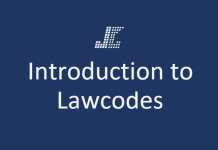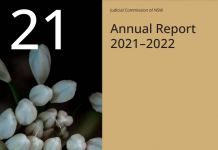Section 1 — Equality before the law
This section has been revised and updated. Further, new commentary at 1.4.1 Unconscious bias has been added. This refers to research into how mental short cuts, known as heuristics, affect the way decisions are made. The demeanour and appearance of a witness has always been a part of the decision making process by judicial officers, however this tendency has been questioned as supporting unconscious bias.
At 1.6 Further Reading a list of articles on unconscious bias have been added.
Section 10 — Self represented litigants
This chapter has been significantly revised and updated with additional cases and articles regarding self-represented litigants.
The text at 10.3.1 Before the court appearance has been updated to include Nobarani v Mariconte (2018) 92 ALJR 806. The trial judge’s failure to make directions for the taking of any steps, or filing or service of any documents by the self-represented appellant meant the appellant was denied the opportunity to cross-examine a significant witness; locate another witness; and call an expert witness and led to the appellant being denied procedural fairness. R v Munshizada; R v Danishyar; R v Baines (No 2) [2019] NSWSC 834 has been added. Representation of the accused by competent counsel is not only a requirement of a fair trial at law, but is also essential to efficiency: at [40].
The text at 10.3.2 At the start of court proceedings has been revised to include Jeray v Blue Mountains City Council (No 2) [2010] NSWCA 367. The court observed at [56] that the duty to ensure a fair trial or proceeding to an unrepresented criminal defendant is greater than that owed to a civil litigant.
The text at 10.3.3 The trial judge’s role has been revised to include Jeray v Blue Mountains City Council (No 2) [2010] NSWCA 367. The trial judge failed to afford the self-represented appellant procedural fairness. Fairness to the appellant required that he be told what the judge considered to be the effect of his conduct and the possible consequences of his discontinuing the proceedings, particularly regarding his liability to pay the respondents’ costs and the probable requirement to pay these costs before commencing further proceedings. Downes v Maxwell Richard Rhys & Co Pty Ltd (in liq) (2014) VR has been added in which procedural fairness was not afforded due to the trial judge’s failure to warn the unrepresented parties that their failure to give evidence could give rise to a Jones v Dunkel inference.
In 10.3.4.3 Final submissions reference has been included to the practice that the Crown does not give a closing address in criminal cases where an accused is unrepresented: MS v R [2017] NSWCCA 252 at [68].
The section on Further information and help at 10.5 has been revised and updated and new articles added to 10.6 Further reading.
Chapter 12 — Index and Tables
The index, table of cases and table of statutes have been updated to include the changes in update 14.










